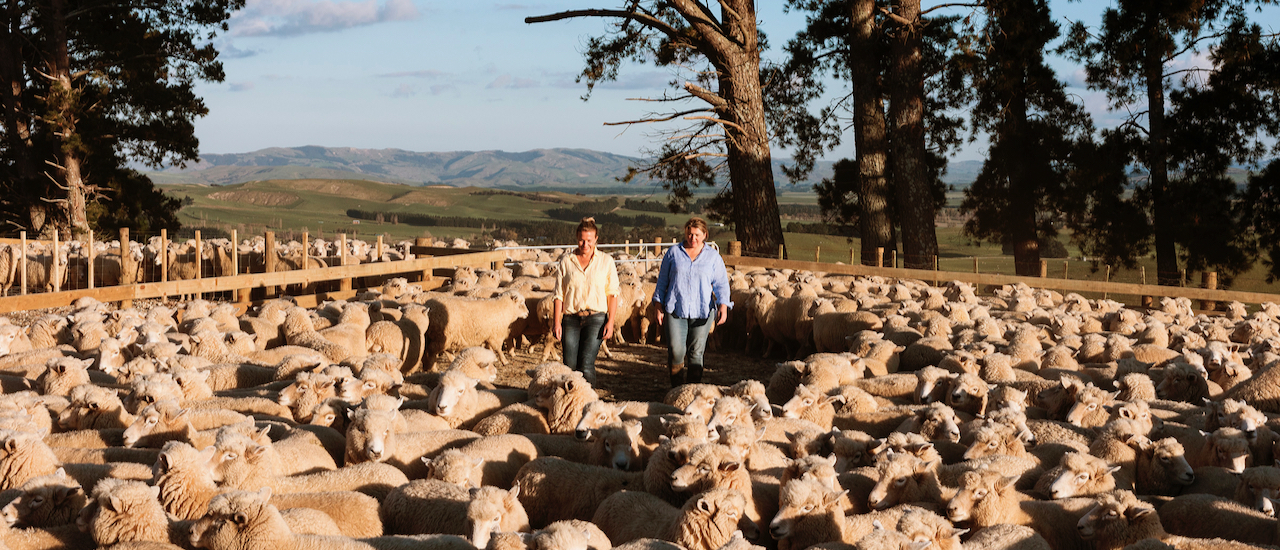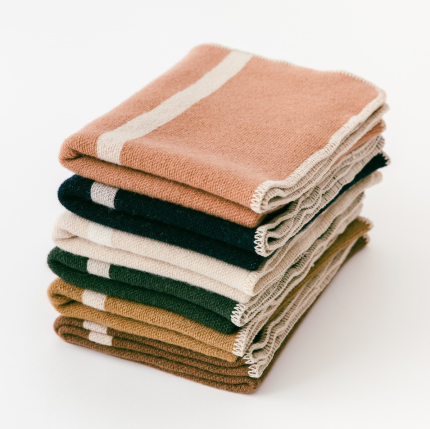
Foxtrot Home: bringing back a New Zealand wonder fibre
A family-owned business making luxurious bed throws out of New Zealand strong wool.
New Zealand wool, once the darling product of our primary industries, has fallen out of favour with Kiwi consumers over the years, replaced by cheap synthetic fabrics. Jo Percival talks to a family-owned business specialising in luxurious bedding who are working to bring back this wonder fibre.

Sisters Kate Cullwick and Prue Watson set up their small business – Foxtrot Home – in March 2017 selling lush French flax linen bedding.
“We wanted to have a business model that would fit in with our lifestyles,” Prue explains. “I’m based in Auckland, and Kate is in Wanstead, Central Hawke’s Bay. Kate has two small children and needed to be able to work from home, rurally. And back then I was working full time in a corporate marketing job, so I needed to be able to work outside of those hours.”
“French linen came about a lot by chance,” Kate continues. “We fell in love with the amazing fabric samples that were sent from Normandy. The quality was incredible. Plus, we knew linen was a far more sustainable and environmentally-friendly option, much better than cotton.”
Initially the sisters began selling their bed linen on Trademe and migrated to their own website soon after.
“As soon as we launched the products sold out so quickly that the momentum really carried us from there,” Kate says. “This was just before linen clothing and bedding became really popular. That trend really helped us, it was great timing.”
Today, Foxtrot Home sells a full range of linen bedding – from deliciously soft sheets and duvet covers to quilts in sizes ranging from cots to California King, in 23 different colour combinations.

“Very early on we decided that we’d stick to the bedroom,” Kate continues. A lot of homeware companies expand out and next thing you’re doing candles and stuff like that, but we were quite happy in our bedroom space.
“But we thought that throws could be a natural progression. We spent a long time researching natural-fibre throws. A lot of the flax linen ones are quite flimsy and not very functional. We wanted to find something you could actually use that also looks beautiful.”
The team quickly realised that all the raw, natural product they needed was right there on Kate’s 740-hectare sheep and beef farm.
While New Zealand consumers are familiar with lightweight wool like Merino, the strong fibre qualities of Romney and Romney-cross wool is largely unknown. Today, rather than being widely used in New Zealand, most strong wool is exported or used for making carpets and upholstery.
However, natural wool is also fire resistant, stain resistant and hypoallergenic. “It’s a wonder fibre, Kate says. “Wool deserves so much more recognition than it gets.”
For Foxtrot’s new range, Kate and Prue wanted to create lambswool throws inspired by vintage New Zealand-made blankets in colours that would match their linen.
“Our throws are knitted, rather than woven, so they’re much bigger than normal bed throws and they have wonderful stretch,” Kate says. “They’re also really heavy and cosy, so they’re functional first, plus they look amazing.”
As well as using homegrown wool from Kate’s farm, the throws are manufactured in New Zealand.
"The wool is scoured and cleaned in Hawke’s Bay, then sent to Wellington for spinning and dyeing,” Prue explains. “That in itself is a massive job because we need to get the exact right colours. Once it’s dyed it comes to an Auckland company who does the knitting, before going full circle on a truck back to Waipukurau for dispatch.”
Kate and Prue are proud to be doing their bit to promote more uses for strong New Zealand wool. “People know about merino and how soft it is, but there’s a job to be done in educating people about strong wool products,” Prue says. “As a homewares brand we do have a voice and an audience, so we’re glad to be able to share that message and hopefully create some demand.”
Reported by Jo Percival for our Spring 2022 issue
